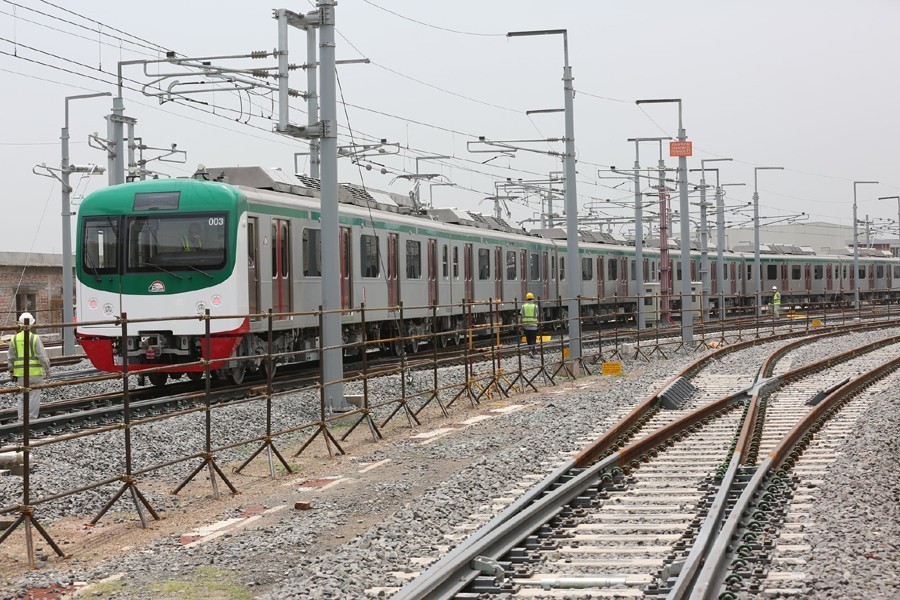
Published :
Updated :

The Dhaka Transport Coordination Authority (DTCA) is going to operate the metro-rail ticketing system, as the first smart card-based system will be launched for the metro-rail from Uttara to Agargaon in the capital in December.
As the clearing house for operating the integrated circuit (IC)-based smart card has been set up under the DTCA, the coordinating authority will also act as the public transport operator (PTO) in addition to its main function.
Officials said until a state-owned special purpose company (SPC) is set up, the public transport operators, like the Bangladesh Railway, the BRTC or the BIWTC, will have to sign an agreement with the DTCA to use those cards in their respective transports.
They noted that the clearing house keeps the daily record of the sale and buying of cards and their use, and the PTO's responsibility is to clear respective shares to the accounts.
"As of now, the MRT is going to use the smart card, and the DTCA will act as the PTO to clear the share of tickets to the Dhaka Mass Transit Company Limited (DMTCL)," said an official.
The government introduced the first smart card - 'Rapid Pass' - in 2018. But the DMTCL also made nearly 1.0 million similar cards - 'MRT Pass' - to introduce in the mass rapid transit line-6 (MRT-6).
The DTCA and the DMTCL will sign an agreement on PTO at the Ministry of Road Transport and Bridges today (Monday).
Secretary of Road Transport and Highways Division (RTHD) A B M Amin Ullah Nuri and DMTCL Managing Director M A N Siddique will sign the agreement on behalf of the respective sides.
The DTCA and the RTHD officials said efforts have been taken to form a SPC to issue, operate and market the IC cards for all public transport independently for ensuring their efficient use. After the formation of the SPC, the DTCA will play the regulatory authority's role.
Since the Rapid Pass launching, the DTCA tried to introduce the cards to other traditional public transport. However, the efforts were not successful due to non-cooperation of the transport operators concerned.
smunima@yahoo.com


 For all latest news, follow The Financial Express Google News channel.
For all latest news, follow The Financial Express Google News channel.